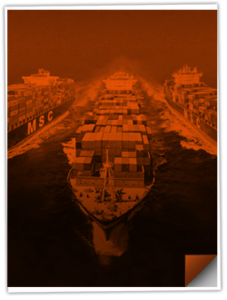What is Country of Origin?
First off, let’s define what we mean by “country of origin.” Simply put, it’s the country where a product was manufactured, produced, or grown. This isn’t just about where the final product was put together but can include where the raw materials came from too.
Why Does Country of Origin Matter?
Knowing the country of origin is important for several reasons:
- Customs Duties: Different countries have different tariff rates. Knowing the country of origin helps determine what duties need to be paid.
- Trade Agreements: Countries often have trade agreements that affect how goods are taxed. For example, products from a country with a free trade agreement might enjoy lower duties.
- Consumer Preferences: Sometimes, consumers prefer products from certain countries due to perceived quality or safety.
How Does Country of Origin Affect Product Sourcing?
When you’re sourcing products internationally, knowing the country of origin can help you make better decisions about where to buy. Here’s how:
- Cost: The cost of importing goods can vary greatly depending on the country of origin due to tariffs and taxes.
- Regulations: Some countries have stricter safety and quality regulations, which can affect your product’s compliance with international standards.
Navigating Customs Brokerage
Customs brokerage is all about ensuring that goods move smoothly across borders. Understanding the country of origin is a big part of this process. Here’s why:
- Documentation: You’ll need to provide the right documents to prove the origin of your goods. This can include certificates of origin and invoices.
- Compliance: Different countries have different rules about what can be imported. Knowing the origin helps ensure you comply with these regulations.
The Role of Logistics in International Shipping
Logistics is the backbone of international shipping. It’s all about getting your products from point A to point B efficiently and effectively. The country of origin can influence logistics in several ways:
- Shipping Routes: The origin can determine the most efficient shipping routes. This can affect shipping times and costs.
- Transportation Costs: Depending on where the product is coming from, transportation costs can vary significantly.
Geopolitical Factors
Geopolitical factors can have a big impact on international shipping. Political instability, trade wars, or changes in government policies can all affect shipping routes and costs. Understanding these factors can help you anticipate potential disruptions.
- Political Stability: Countries experiencing political unrest might face delays or increased shipping costs.
- Trade Policies: Changes in trade policies, like new tariffs or trade agreements, can affect costs and logistics.
Forecasting Future Trends in Global Trade
Being able to predict future trends in global trade is a valuable skill. Here are a few things to keep an eye on:
- Technological Advancements: New technologies can streamline logistics and reduce costs.
- Environmental Regulations: Increasing environmental concerns might lead to stricter regulations on shipping practices.
- Global Economic Shifts: Economic growth in different regions can shift trade patterns and affect demand for certain products.
How to Stay Ahead
Keeping up with changes in international shipping requires staying informed and being flexible. Here are some tips:
- Stay Informed: Follow news about international trade and shipping. This can help you anticipate changes and adjust your strategies accordingly.
- Build Relationships: Strong relationships with suppliers and logistics partners can help you navigate changes more smoothly.
- Invest in Technology: Using the latest technology can help streamline processes and reduce costs.



